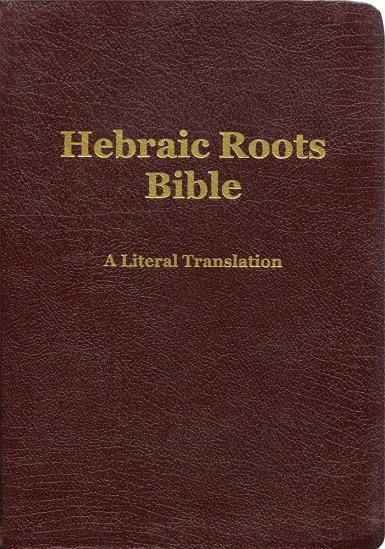

Rating
Summary of Features
Feature
Publication Date
1st Edition: 2009
2nd Edition: 2012
Cover
Hardcover (1st Edition)
Bonded Leather (2nd Edition)
Size
10.5 inches tall
7.5 inches long
1.5 inches thick
Thumb-Index Tabs
No
Text Format
Double Column Verse Format
Headings
None
Mashiyach's Words in Red
No
Extensive Cross References
No
Footnotes
Authors personal theological ideas
Concordance
No
Name of the Father
Yahweh
Name of the Son
Yahshua
Hebrew Transliterations
None other than Elohim
Book Order
Hebrew Tanak Order
Torah
Prophets
Writings
Eastern Aramaic Order
Good News/Acts
Jewish Epistles
Pauline Epistles
Revelation
Base Text
King James Version
Old Archaic English
No
Manuscript Origin
None. Only other translations were consulted.
Review
This bible is advertised to be based on the Aramaic Peshitta text for the New Testament. This is a lie. What this bible represents is another edited King James Version by someone who has zero knowledge of the languages. The author even admits this! Straight from the introduction we read "I will say upfront that I am neither a Hebrew or Aramaic scholar, and don't claim to be one." Based on this alone why would you even waste your time reading his revision of the Scriptures? There are much better options available.
This is a Greek based Bible with some changes based on what the author has read in Peshitta transdlations (such as Lamsa, Younan and Murdock), but it is by no means anything near a Peshitta translation. It would take me hours to list every variation from the Greek that this editor missed Those who know the language and the manuscripts will see this easily, although some of the obvious changes are there. However, all of these, as well as their justifications, seem to be straight from either George Lamsa or Andrew Roth. But they, of course, actually are Hebrew and/or Aramaic scholars.
The footnotes are very basic and do not provide much scholarly insight, nor are there 1000's of examples illustrating Aramaic primacy proofs as also advertised (at least on amazon). In the footnotes I found inconsistency in the way YHWH's name is spelt (sometimes it's YHWH, sometimes it's Yahweh). There is also an emphasis on Trinitarian theology, for those of you who may have an issue with that (as well as interesting related marks, such as the "the Yahweh family"). In any case, you will be reading the authors opinions and as I mentioned, getting very little (if any) scholarly insight. It should be noted also that the author mispels Yeshua's name (read about why it's wrong here).
So, if you would like an actual Messianic or Sacred Name translation of the Aramaic, then you would be much better off buying something else. Andrew Gabriel Roth's "Aramaic English New Testament" would be an ideal choice, being both cheaper than what is listed here and offering much, much more insight. If you would simply like a scholarly translation of the Peshitta, Janet Magiera has produced an original translation of the Aramaic with good textual notes. She has also produced a Messianic Version as well if you would like the Sacred Names. Either of those would be good choices.
This book however, if you are truly interested in it, you could see it for free online (click here). But my suggestion is not to waste either your time or money. This is nothing more than a wasteful revision to go on the pile of pseudo-scholars who want the Scriptures to read and look the way they feel it should. I hate to say it so harshly and plainly, but the truth really needs to get out there. Stop following men who know only slightly more than you do, stop searching for the cool translation on the market and just start following our Heavenly Father by doing what He says in EVERY translation.
~~~~~~~~~~~~~~
RETURN TO HOME PAGE